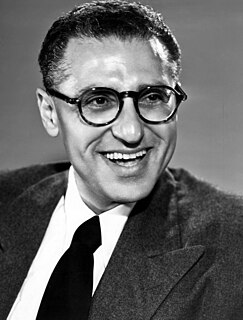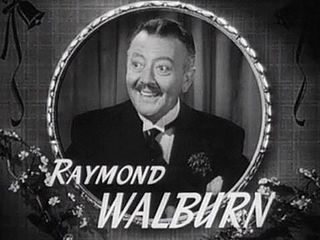Related Research Articles

George Dewey Cukor was an American film director and film producer. He mainly concentrated on comedies and literary adaptations. His career flourished at RKO when David O. Selznick, the studio's Head of Production, assigned Cukor to direct several of RKO's major films, including What Price Hollywood? (1932), A Bill of Divorcement (1932), Our Betters (1933), and Little Women (1933). When Selznick moved to Metro-Goldwyn-Mayer in 1933, Cukor followed and directed Dinner at Eight (1933) and David Copperfield (1935) for Selznick and Romeo and Juliet (1936) and Camille (1936) for Irving Thalberg.

James Francis Cagney Jr. was an American actor, dancer and film director. On stage and in film, Cagney was known for his consistently energetic performances, distinctive vocal style, and deadpan comic timing. He won acclaim and major awards for a wide variety of performances. He is remembered for playing multifaceted tough guys in films such as The Public Enemy (1931), Taxi! (1932), Angels with Dirty Faces (1938), The Roaring Twenties (1939), City for Conquest (1940) and White Heat (1949), finding himself typecast or limited by this reputation earlier in his career. He was able to negotiate dancing opportunities in his films and ended up winning the Academy Award for his role in the musical Yankee Doodle Dandy (1942). In 1999 the American Film Institute ranked him eighth among its list of greatest male stars of the Golden Age of Hollywood. Orson Welles described Cagney as "maybe the greatest actor who ever appeared in front of a camera".

Clinton Eastwood Jr. is an American actor, film director and producer. After achieving success in the Western TV series Rawhide, he rose to international fame with his role as the "Man with No Name" in Sergio Leone's "Dollars Trilogy" of Spaghetti Westerns during the mid-1960s and as antihero cop Harry Callahan in the five Dirty Harry films throughout the 1970s and 1980s. These roles, among others, have made Eastwood an enduring cultural icon of masculinity. Elected in 1986, Eastwood served for two years as the mayor of Carmel-by-the-Sea, California.

Lady for a Day is a 1933 American pre-Code comedy-drama film directed by Frank Capra. The screenplay by Robert Riskin is based on the 1929 short story "Madame La Gimp" by Damon Runyon. It was the first film for which Capra received an Academy Award nomination for Best Director and the first Columbia Pictures release to be nominated for Best Picture. Capra also directed its 1961 remake, Pocketful of Miracles.

Mr. Deeds Goes to Town is a 1936 American comedy-drama romance film directed by Frank Capra and starring Gary Cooper and Jean Arthur in her first featured role. Based on the 1935 short story "Opera Hat" by Clarence Budington Kelland, which appeared in serial form in The American Magazine, the screenplay was written by Robert Riskin in his fifth collaboration with Frank Capra.
Here Comes Mr. Jordan is a 1941 American fantasy romantic comedy film directed by Alexander Hall, in which a boxer, mistakenly taken to Heaven before his time, is given a second chance back on Earth. It stars Robert Montgomery, Claude Rains and Evelyn Keyes.

Thea Gabriele von Harbou was a German screenwriter, novelist, film director, and actress. She is remembered as the screenwriter of the science fiction film classic Metropolis (1927) and for the 1925 novel on which it was based. Harbou collaborated as a screenwriter with film director Fritz Lang, her husband, during the period of transition from silent to sound films.

Alan Hale Jr. was an American actor and restaurateur. He was the son of actor Alan Hale Sr. His television career spanned four decades, but he was best known for his secondary lead role as Captain Jonas Grumby, better known as The Skipper, on the 1960s CBS comedy series Gilligan's Island (1964–1967), a role he reprised in three Gilligan's Island television films and two spin-off cartoon series.

Meet John Doe is a 1941 American comedy-drama film directed and produced by Frank Capra, written by Robert Riskin, and starring Gary Cooper and Barbara Stanwyck. The film is about a "grassroots" political campaign created unwittingly by a newspaper columnist with the involvement of a hired homeless man and pursued by the paper's wealthy owner. It became a box-office hit and was nominated for an Academy Award for Best Story. It was ranked No. 49 in AFI's 100 Years ... 100 Cheers. In 1969, the film entered the public domain in the United States because the claimants did not renew its copyright registration in the 28th year after publication. It was the first of two features Capra made for Warner Brothers, after he left Columbia Pictures, the other being Arsenic and Old Lace (1944).

Robert Riskin was an American Academy Award-winning screenwriter and playwright, best known for his collaborations with director-producer Frank Capra.

Raymond Walburn was an American character actor of stage and screen who appeared in dozens of Hollywood movie comedies and an occasional dramatic role during the 1930s and 1940s.

American Madness is a 1932 American pre-Code film directed by Frank Capra and starring Walter Huston as a New York banker embroiled in scandal.

You Can't Take It with You is a 1938 American romantic comedy film directed by Frank Capra and starring Jean Arthur, Lionel Barrymore, James Stewart and Edward Arnold. Adapted by Robert Riskin from the Pulitzer Prize-winning 1936 play of the same name by George S. Kaufman and Moss Hart, the film is about a man from a family of rich snobs who becomes engaged to a woman from a good-natured but decidedly eccentric family.

George N. Neise was an American character actor. He made over 120 film and television appearances between 1942 and 1978.

Patrick McGilligan is an Irish American biographer, film historian and writer. His biography on Alfred Hitchcock, Alfred Hitchcock: A Life in Darkness and Light was a finalist for the Edgar Award. He is the author of two New York Times Notable Books, and he lives in Milwaukee, Wisconsin. He is also noted for his biography on Clint Eastwood, Clint: The Life and Legend, which reveals much about Eastwood which his official biography by Richard Schickel left out. In addition to Hitchcock and Eastwood, he has written biographies on Robert Altman, James Cagney, George Cukor, Fritz Lang, Oscar Micheaux, Jack Nicholson, Nicholas Ray, Orson Welles and Mel Brooks. He is also an editor of Backstory, which features interviews of Hollywood screenwriters and is published by the University of California Press.

This is a comprehensive listing of the radio programs made by Orson Welles. Welles was often uncredited for his work, particularly in the years 1934–1937, and he apparently kept no record of his broadcasts.
Radio is what I love most of all. The wonderful excitement of what could happen in live radio, when everything that could go wrong did go wrong. I was making a couple of thousand a week, scampering in ambulances from studio to studio, and committing much of what I made to support the Mercury. I wouldn't want to return to those frenetic 20-hour working day years, but I miss them because they are so irredeemably gone.

The Amazing Mr. Williams is a 1939 American screwball comedy film produced by Everett Riskin for Columbia Pictures and directed by Alexander Hall. The film stars Melvyn Douglas, Joan Blondell and Clarence Kolb. It was written by Dwight Taylor, Sy Bartlett and Richard Maibaum. The film is about a police lieutenant who is too busy solving crimes to get married to his longtime fiancée, who decides to take action and get him to marry her and settle down. The film was released on November 22, 1939.
Riskin is a surname. Notable people with the name include:
Victoria Riskin is an American author, psychologist, television writer and producer, and human rights activist.

Vanity Street is a 1932 American crime drama film directed by Nick Grinde and starring Charles Bickford, Helen Chandler and Mayo Methot.